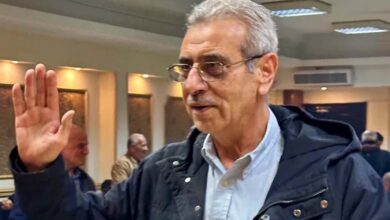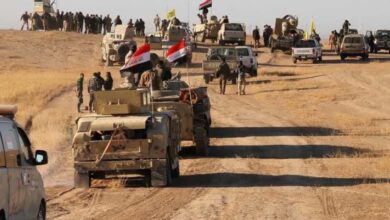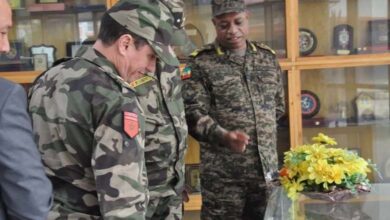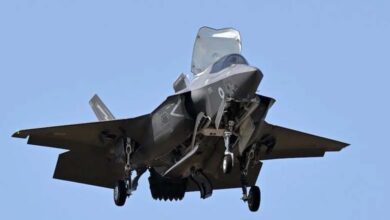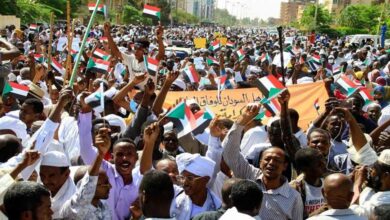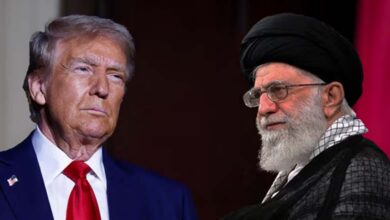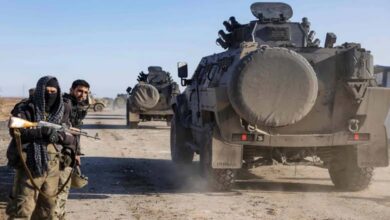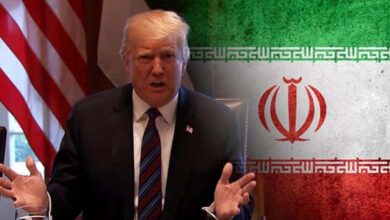Al-Burhan promotes an alliance between mercenaries and ‘Support’ in search of western approval
Sudan's army chief talks about unidentified mercenaries without specifying their identities or showing any footage of them, raising doubts about the accuracy of this information. This statement comes after the revelation of the army's connection to Islamist extremists.
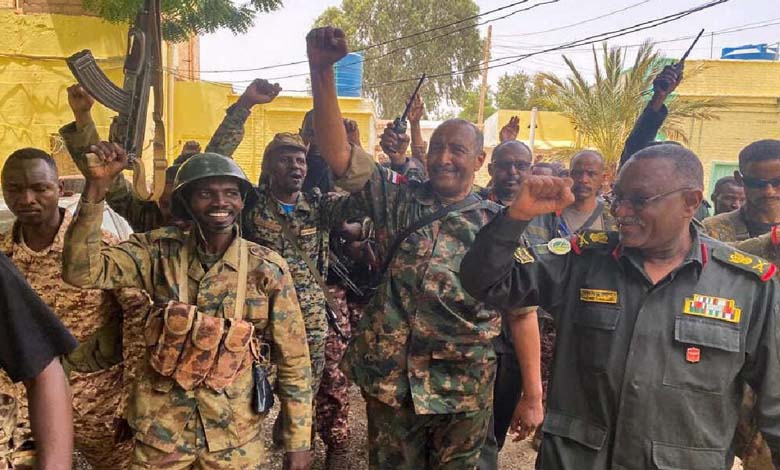
The head of Sudan’s Sovereignty Council, Abdel Fattah al-Burhan, feels great embarrassment after the role of extremist Islamists in the fighting alongside the armed forces was revealed. This led him to respond by making baseless accusations of the involvement of mercenaries within the ranks of the Rapid Support Forces led by Mohamed Hamdan Hemeti.
In a speech delivered during his visit to the 19th Division in the Northern State, according to the Sovereignty Council’s statement, al-Burhan talked about unidentified mercenaries within the ranks of the support forces without specifying their identities or providing any evidence, stating that they are “from all directions,” which raises doubts about the accuracy of this information.
Al-Burhan is attempting to counter accusations against the army of forming alliances with remnants of the previous regime and leaders of Islamist groups. This is exemplified by the US sanctions imposed on the Secretary-General of the Islamic Movement, Ali Karti, on charges of involvement in the war, which serves as evidence of the extent of cooperation between the army and Islamists.
The Sovereignty Council tried to distance itself from the meeting between its head and Karti in Port Sudan last week, in an attempt to create a gap between them and the extremist Islamists, fearing American anger. However, the situation on the ground indicates that army leaders are linked to the remnants of the previous regime and the dissolved National Congress Party.
Pro-Islamist or army-affiliated media outlets continue to promote the idea of the presence of “Russian” mercenaries supporting the Rapid Support Forces in their war, but this has not been substantiated. It remains an attempt by the army to gain the support of Western powers opposed to Russian presence, primarily the United States. Al-Burhan met with Ukrainian President Volodymyr Zelenskyy last week to discuss Moscow-backed militias, which was understood as an attempt to attract Western powers and position Sudan within the American axis.
The army chief is navigating the geopolitical tensions in the region and the world to prevent the collapse of his forces, which have lost many strategic positions, especially in the capital, Khartoum. His foreign tour is an attempt to gain support and approval from Egypt and Saudi Arabia. Observers believe that Cairo and Riyadh will not be pleased with al-Burhan‘s efforts to bring the Islamists back to the forefront in Sudan’s governance and his alliances with extremists, especially since both countries classify the group as a terrorist organization.
Hemeti was the first to reveal the army’s connection to the extremists in a letter to the United Nations General Assembly. He spoke about the army’s leaders forming alliances with extremist Islamists, including ISIS leaders, saying, “Members of the ‘ISIS’ organization, whose leader, Mohammed Ali al-Jazouli, we arrested, have allied with the armed forces and are now threatening stability and security in Africa.”
This statement raised fears within the Sudanese army that the international community might take steps to impose harsh sanctions in response to its potential alliance with extremists, which would further deepen its field crisis and hinder al-Burhan’s efforts to secure external support.
It appears that the international community, Western powers, and some Arab countries are increasingly convinced of the danger of the Sudanese army‘s alliance with Islamist groups that have led Sudan to a state of collapse.


